Electrical FCT Test Fixture For Automotive Radar Transmit Receive Module
|
|
Radar Transmit/Receive Module Test Fixture
Radar transmit-receive modules are used in a variety of applications, including:
These modules are crucial for the functioning of various radar-based systems across multiple industries.
tooling parameters Material: The selection of materials for tooling is crucial as it directly affects the durability and lifespan of the tooling. Commonly used materials include aluminum alloy, stainless steel, and synthetic stone. For example, solder pot tooling typically uses domestic or imported fiberglass materials, aluminum plates, stainless steel materials, and synthetic stone for construction. Size: The size of the tooling needs to be determined based on the dimensions of the workpiece being processed to ensure accurate positioning and fixation. Dimensions generally include length, width, height, etc., and can be customized according to actual requirements. Precision: The positioning accuracy of the tooling is one of the key parameters, determining the accuracy of the workpiece's location during processing. High-precision tooling can improve processing quality and reduce errors. Strength: Tooling must have sufficient strength to withstand various forces during the processing, such as cutting forces, pressure, etc. This is usually achieved by selecting appropriate materials and structural design. Wear Resistance: Tooling will come into contact with workpieces and cutting tools during use, therefore it needs to have good wear resistance to extend its service life. Operating Temperature: Some tooling operates at specific temperatures, so its heat resistance needs to be considered. For instance, solder pot tooling needs to withstand high temperatures up to 350 degrees without deformation. Insulation: In some scenarios requiring electrical isolation, the insulation performance of the tooling is also very important. Weight: The weight of the tooling is also a consideration, especially in situations where frequent movement or adjustment of positions is required. A lightweight design can enhance operational convenience. Compatibility: Tooling should be compatible with the equipment used, including interface types and installation methods. Overall, the selection and optimization of tooling parameters are complex and detailed processes that require comprehensive consideration of various factors to achieve the best usage effect |
| Product Tags: electrical fct test fixture Automotive fct test fixture Automotive Radar electrical test fixture |
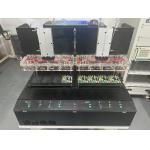
|
Power Supply Test Fixture Features Stable Functions Fast Testing Speed |
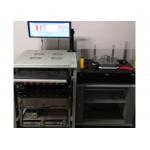
|
Charging Pile Automated Test Fixture ATE Systems Customized |
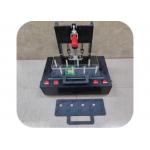
|
Carrier Plate Rotation Automated Test Fixture For Circuit Board OEM |
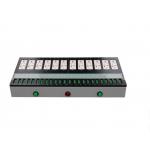
|
Portable Automated Test Fixture Uninterruptible Power Supply Rack AC-DC DC-DC |
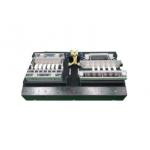
|
Automatic Switching Test Hipot ATE Circuit Board Fixture In Testing |

|
FCT Electrical Test Fixture Equipment For Automotive Motor Control Board |


